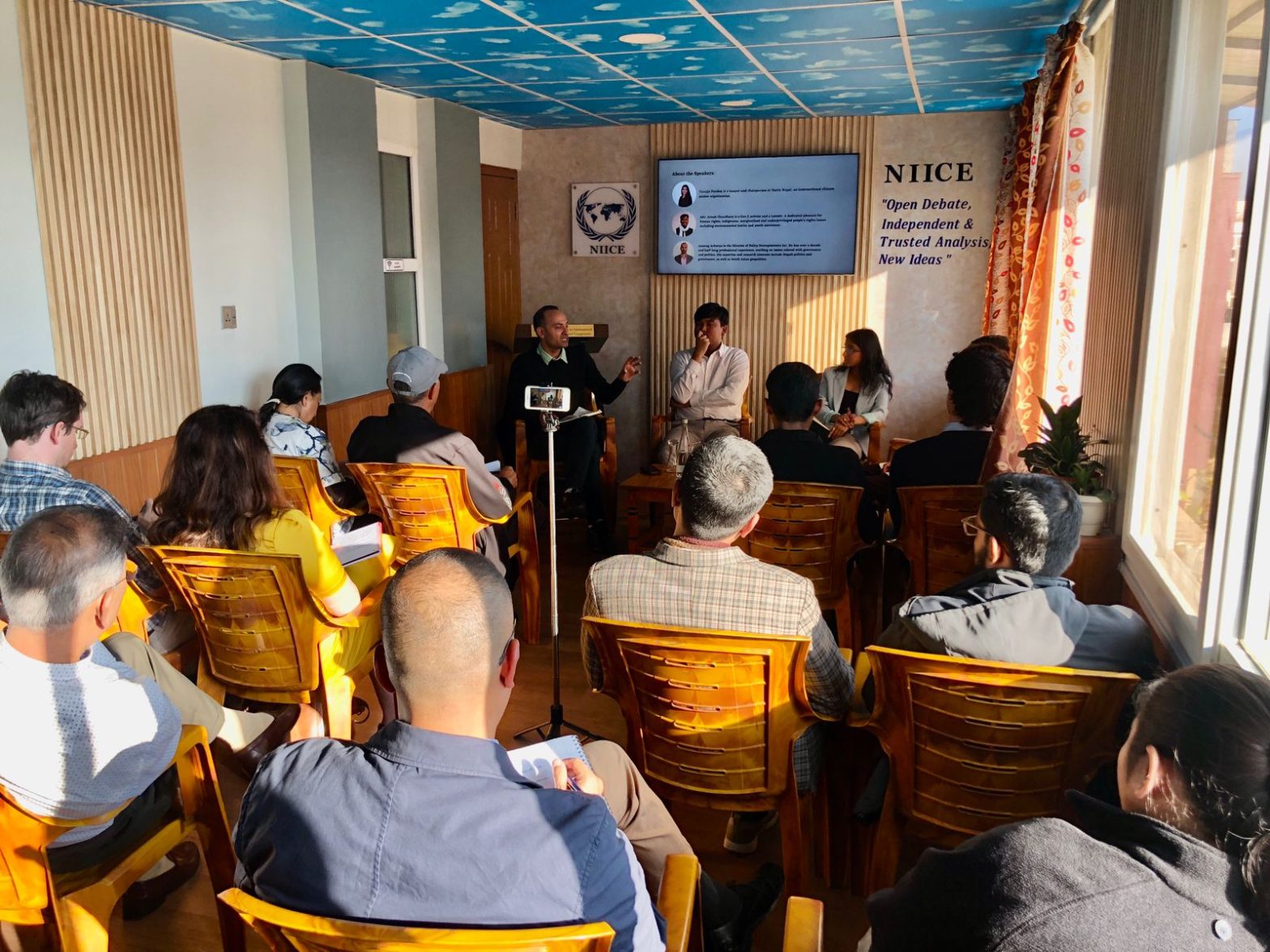Kathmandu: Nepal Institute for International Co-operation and Engagement (NIICE) on Wednesday organized a discussion titled “From Streets to Ballots: The Gen Z Movement and Nepal’s Next Election” at its seminar hall in Hattiban, Lalitpur. The event brought together activists, researchers, and policy experts to analyze the recent Gen Z protests and their potential impact on Nepal’s political landscape.
Opening the session, NIICE Program Coordinator and Research Associate Bibek Dhoj Thapa said the Gen Z movement had opened new political debates in the country. He highlighted their growing expectations from the government and the upcoming elections, while pointing out challenges such as age restrictions on participation and the lack of a unified front among young activists.
Gen Z activist Tanuja Pandey described the movement as a response to long-standing systemic failures, saying young Nepalis are demanding “an advanced democracy where justice is accessible and inequality is not normalized.” She noted that Gen Z’s activism predates the September 8 protest, often expressed through creative and peaceful demonstrations such as hugging trees and reading books in public spaces.
Another Gen Z activist, Arnab Chaudhary, challenged the perception that young protesters are privileged or disconnected from struggle. He said they grew up amid political turmoil, including the civil war, and remain deeply aware of regional disparities in opportunities. “Gen Z has lost faith in the system’s flaws, not in democracy or federalism,” he stated, condemning corruption and state-sponsored violence.
Anurag Acharya, Director of Policy Entrepreneurs Inc. (PEI), drew comparisons between the 2006 people’s movement and the current youth-led protests. He said while the earlier movement was backed by political parties and civil society, today’s demonstrations are being led solely by young citizens. “Gen Z is unwilling to wait for change as earlier generations did,” he said, urging them to hold inactive civil rights groups accountable.
During the interactive session, Chaudhary dismissed claims of division among Gen Z activists, clarifying that they are “networked rather than divided.” Responding to a question about online disinformation campaigns targeting her, Pandey said her focus remained on “keeping the spirit of the movement alive rather than engaging in distraction.”
In his closing remarks, Acharya referred to Bangladesh’s youth-led “July Charter,” which calls for limiting executive power, and encouraged Nepali youths to consider their stance on similar governance issues.
The discussion concluded with calls for sustained engagement, intergenerational dialogue, and a stronger political voice for Nepal’s emerging generation of voters.
